- Home
- Quizzes
- My Quiz Activity
- Newsletters
- Sports Betting
- MY FAVORITES
- Add Sports/Teams
- SPORTS
-
NFL
- NFL Home
- Arizona Cardinals
- Atlanta Falcons
- Baltimore Ravens
- Buffalo Bills
- Carolina Panthers
- Chicago Bears
- Cincinnati Bengals
- Cleveland Browns
- Dallas Cowboys
- Denver Broncos
- Detroit Lions
- Green Bay Packers
- Houston Texans
- Indianapolis Colts
- Jacksonville Jaguars
- Kansas City Chiefs
- Las Vegas Raiders
- Los Angeles Chargers
- Los Angeles Rams
- Miami Dolphins
- Minnesota Vikings
- New England Patriots
- New Orleans Saints
- New York Jets
- New York Giants
- Philadelphia Eagles
- Pittsburgh Steelers
- San Francisco 49ers
- Seattle Seahawks
- Tampa Bay Buccaneers
- Tennessee Titans
- Washington Commanders
-
MLB
- MLB Home
- Arizona Diamondbacks
- Atlanta Braves
- Baltimore Orioles
- Boston Red Sox
- Chicago White Sox
- Chicago Cubs
- Cincinnati Reds
- Cleveland Guardians
- Colorado Rockies
- Detroit Tigers
- Houston Astros
- Kansas City Royals
- Los Angeles Angels
- Los Angeles Dodgers
- Miami Marlins
- Milwaukee Brewers
- Minnesota Twins
- New York Yankees
- New York Mets
- Oakland Athletics
- Philadelphia Phillies
- Pittsburgh Pirates
- San Diego Padres
- San Francisco Giants
- Seattle Mariners
- St. Louis Cardinals
- Tampa Bay Rays
- Texas Rangers
- Toronto Blue Jays
- Washington Nationals
-
NBA
- NBA Home
- Atlanta Hawks
- Boston Celtics
- Brooklyn Nets
- Charlotte Hornets
- Chicago Bulls
- Cleveland Cavaliers
- Dallas Mavericks
- Denver Nuggets
- Detroit Pistons
- Golden State Warriors
- Houston Rockets
- Indiana Pacers
- Los Angeles Clippers
- Los Angeles Lakers
- Memphis Grizzlies
- Miami Heat
- Milwaukee Bucks
- Minnesota Timberwolves
- New Orleans Pelicans
- New York Knicks
- Oklahoma City Thunder
- Orlando Magic
- Philadelphia 76ers
- Phoenix Suns
- Portland Trail Blazers
- Sacramento Kings
- San Antonio Spurs
- Toronto Raptors
- Utah Jazz
- Washington Wizards
-
NHL
- NHL Home
- Anaheim Ducks
- Arizona Coyotes
- Boston Bruins
- Buffalo Sabres
- Calgary Flames
- Carolina Hurricanes
- Chicago Blackhawks
- Colorado Avalanche
- Columbus Blue Jackets
- Dallas Stars
- Detroit Red Wings
- Edmonton Oilers
- Florida Panthers
- Los Angeles Kings
- Minnesota Wild
- Montreal Canadiens
- Nashville Predators
- New Jersey Devils
- New York Islanders
- New York Rangers
- Ottawa Senators
- Philadelphia Flyers
- Pittsburgh Penguins
- San Jose Sharks
- Seattle Kraken
- St. Louis Blues
- Tampa Bay Lightning
- Toronto Maple Leafs
- Vancouver Canucks
- Vegas Golden Knights
- Washington Capitals
- Winnipeg Jets
- NCAAF
- NCAAM
- Boxing
- Entertainment
- Lifestyle
- Golf
- MMA
- Soccer
- Tennis
- Wrestling
- More Sports
- RESOURCES
- My Account
- YB on Facebook
- YB on Twitter
- YB on Flipboard
- Contact Us
- Privacy Policy
- Terms of Service
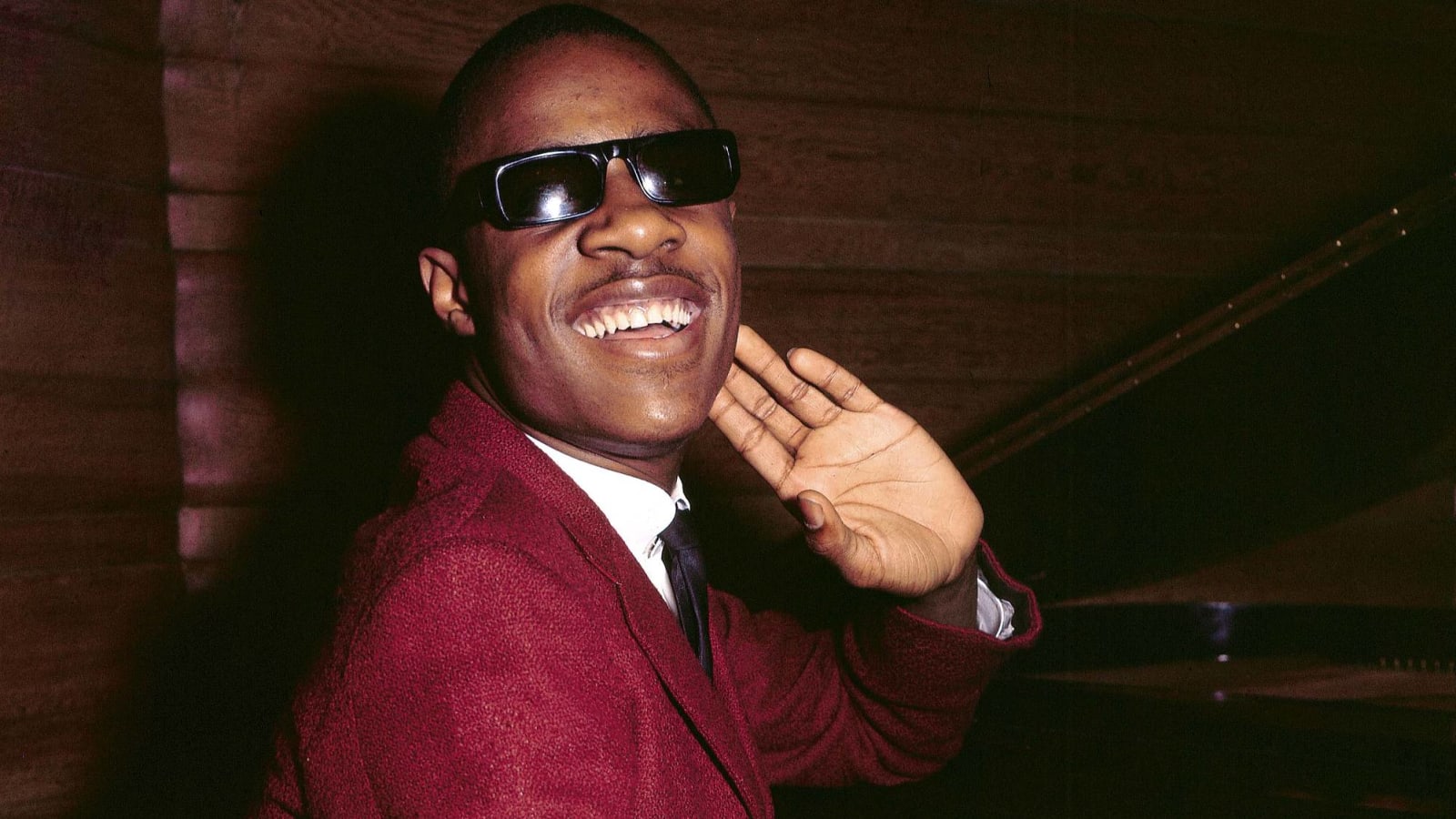
Stevie Wonder's discography, ranked
The least we can do to celebrate Mr. Stevland Hardaway Judkins, aka Stevie Wonder, is to take a stroll through his studio discography, which stretches all the way back to 1962 when he was a Motown child prodigy. While these LPs are ranked from least to greatest, it's important to note that there are no bad Stevie Wonder albums — just efforts that occasionally aren't worthy of his mind-blowing talent.
"Stevie at the Beach" (1964)

Now that the novelty had worn off, Berry Gordy had to figure out how to sell records via the brilliance of his blind prodigy. Capitalizing on the surf music craze of the early 1960s probably may sound exploitative, but 14-year-old Wonder rises to the occasion with the strikingly pensive “Castles in the Sand." To his credit, the youngster places an original spin on every standard kicked his way (e.g. “Ebb Tide”, “Red Sails in the Sunset” and “Beyond the Sea”), but this is like using a Ferrari to haul lumber.
"With a Song in My Heart" (1963)
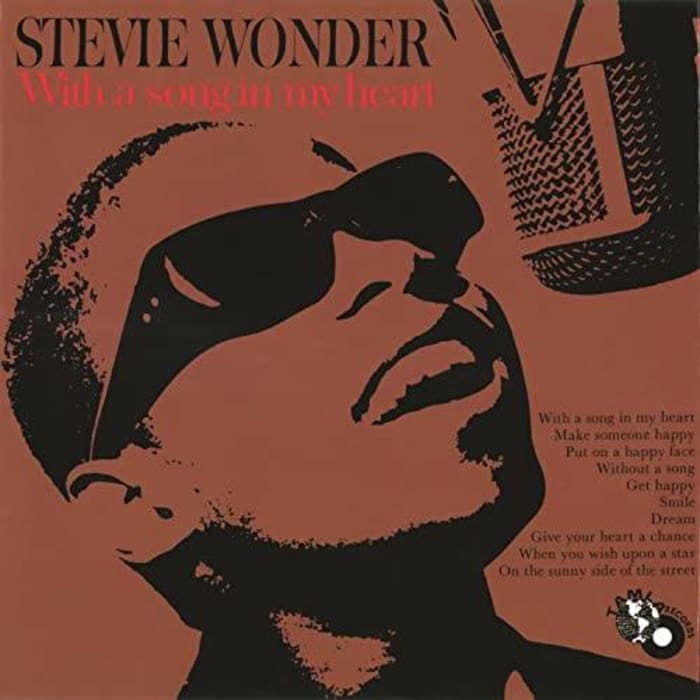
The affected rasp Wonder would put to indelible use throughout his career unexpectedly turns up in the opening track, a soulful cover of Rodgers and Hart’s “With a Song in My Heart." The skillful arrangements and impeccable musicianship (provided by Los Angeles session musicians rather than Motown’s in-house workhorses, The Funk Brothers) make for a pleasurable listen. But even if you didn’t know what was to come, you probably would’ve gotten the sense of something squandered by hearing this one-of-a-kind talent knock out covers of “Get Happy," “Smile” and “When You Wish Upon a Star." But, man, Wonder’s rendition of “On the Sunny Side of the Street” soars.
"Eivets Rednow" (1968)

If you had to be stuck in an elevator for a half-hour, you’d take this assortment of instrumentals over the usual piped-in pabulum any day. As for something you’d listen to outside of a lift, it’s interesting in that Wonder gets solo credit on a few of the tracks, but they’re pretty forgettable. Stevie messes around on the covers to interesting effect (e.g. the staccato harmonica hits on “Alfie”), and his version of “Grazing in the Grass” is far more interesting than The Friends of Distinction’s. But this is treading water after “I Was Made to Love Her."
"Tribute to Uncle Ray" (1962)

Recorded prior to “The Jazz Soul…”, this was Berry Gordy’s shameless attempt to jump-start the young Wonder’s career by pairing him with the era’s most iconic blind musician. It’s a mixed bag of Ray Charles hits and shopworn standards like “The Masquerade” and “Frankie & Johnny." A pseudonymous Stevie shares a songwriting credit with Clarence Paul on “Sunset," and, unsurprisingly, it’s the album’s highlight.
"My Cherie Amour" (1967)
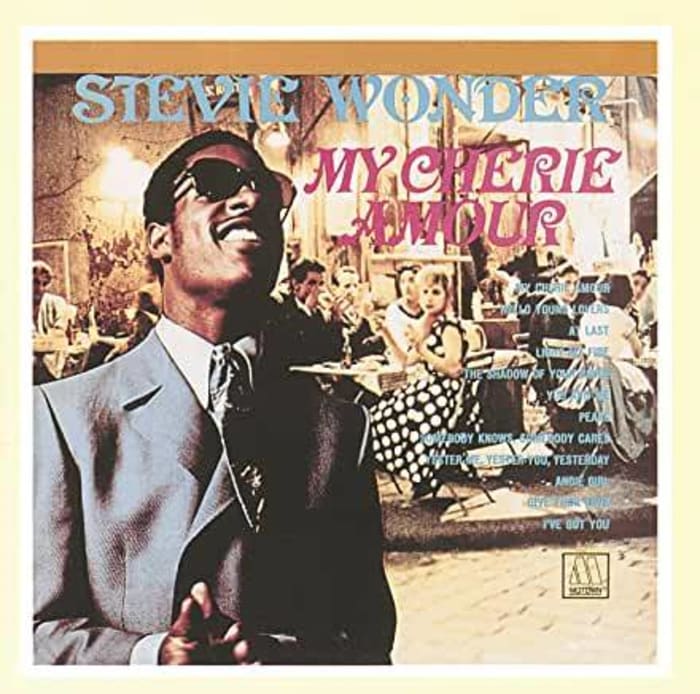
A step back from “For Once in My Life," but Motown’s furious, churn-‘em-out pace is more to blame here than Wonder’s lack of nerve. Wonder was experiencing vocal issues and couldn’t get back in the studio quick enough for Berry Gordy’s liking — which worked out because he had the title track and “Yester-Me, Yester-You, Yesterday” sitting on the shelf. Aside from those two standouts, it’s a mess of covers and b-sides. “The Shadow of Your Smile” is forgivable if only because every living recording artist was required by law to issue a version of it, but “Hello, Young Lovers” from “The King and I” under any circumstance is egregious. The exception: Wonder’s bizarre, uptempo run-through of “At Last." Awash in aggro strings, brass and Stevie’s rambunctious harmonica, he turns Etta James’s signature standard into a cacophonic joy.
"Down to Earth" (1966)
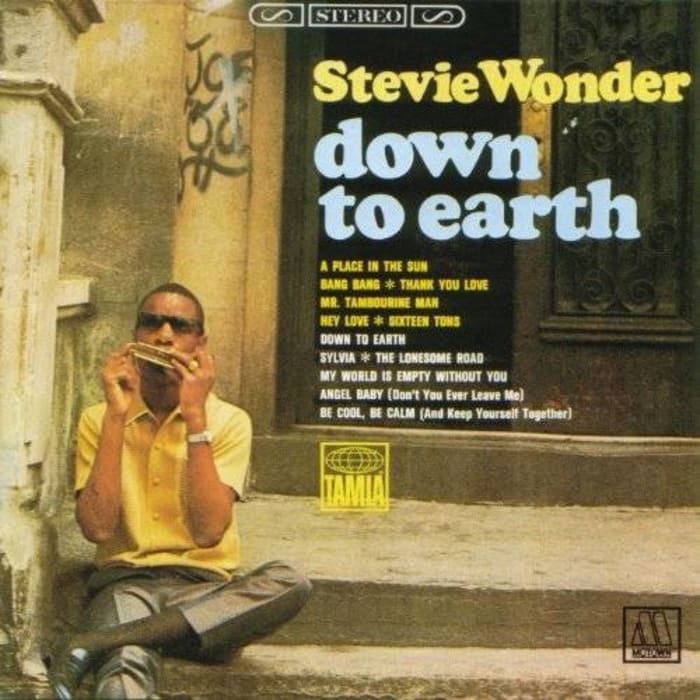
Though this album lacks a breakout hit like “Uptight (Everything’s Alright)”, the opening track, “A Place in the Sun," presages Wonder’s socially conscious sensibilities; released at the end of 1966, it strikes a hopeful note in the midst of civil rights strife and the escalating conflict in Vietnam. Alas, Gordy saddles Stevie with more covers. A 16-year-old kid has no business crooning Cher’s “Bang Bang” or, worse, Tennessee Ernie Ford’s “Sixteen Tons” (the latter sounds like someone was having a laugh at Wonder’s expense). The ho-hum LP closes out with an underrated classic, “Hey Love”, which De La Soul resurrected decades later on “De La Soul Is Dead”.
"Up-Tight" (1966)

Berry Gordy was about to give up on Stevie Wonder when Motown songwriters Sylvia Moy and Henry Cosby, certain that the young man had greatness in him, sat him down and rifled through his songwriting ideas. As often seems to be the case, Wonder had exhausted every thing in his arsenal when he tried out an unfinished tune. The result was “Uptight (Everything’s Alright)," and, in terms of Wonder’s career, everything was at least back on track. Wonder fit like a glove with The Funk Brothers (who didn’t), and though the rest of the album feels like reworked leftovers from previous Motown hits (“Love a Go Go” is practically a cover of “Dancing in the Street” for a few bars), it’s got a consistent groove that keeps you listening. The Wonder co-written “Pretty Little Angel” sounds like a girl-band track and should’ve been a hit for another Motown artist. There’s still some cover filler (Stevie does little with “Blowin’ in the Wind”), but the adult Stevie is peeking through.
"Stevie Wonder's Journey Through the Secret Life of Plants" (1979)

Filmmaker Walon Green’s idea to have a sightless musical genius capture the beauty of nature in song sounds inspired, and at various points throughout the soundtrack’s 90-minute runtime Wonder conjures up some bafflingly gorgeous compositions. Then he drops a maddeningly repetitive, nine-minute track like “Race Babbling," and you’re reminded that even (especially) the greats can completely lose their creative bearings. The first half of the LP is basically a little bit prog, a little bit new age and of interest to those with an adventurous ear. The second half is more conventional. Though the album confounded most of his fans, “Send One Your Love” hit the Billboard top 10; it’s also weak stuff compared to the bouncy “Outside My Window” and the Wendy Carlos-ian “Ecclesiastes." Wonder should’ve closed out the LP with the title track, but, hey, a little more bloat at least feels thematically appropriate.
"The Jazz Soul of Little Stevie" (1962)

A fizzy showcase for a wunderkind, “The Jazz Soul of Little Stevie” is blessedly devoid of the covers that made his early LP output a chore to get through. But what are you supposed to do with a 12-year-old virtuoso? The “Fingertips” you love — the 45 single spread out over two sides — is on 1963’s “Recorded Live: The 12 Year Old Genius”), but Motown songwriting greats Henry Cosby and Clarence Paul whip up a half-hour’s worth of jazzy delights. “Some Other Time” is a terrific ballad driven by Wonder’s trusty harmonica. Had Wonder failed to break out (and it was looking dicey for a while), this would still hold up as a solidly crafted album, novelty be damned.
"Characters" (1987)

The weakest of Wonder’s ‘80s output, but there’s still plenty to like here. “Skeletons” is a slyly political dance track (and the go-to seduction track for Argyle from “Die Hard”), and the much-ballyhooed duet with Michael Jackson on “Get It” delivers. The best song on the LP is a bonus track: “Come Let Me Make Your Love Come Down," a throwback to Wonder’s blues roots, featuring B.B. King and Stevie Ray Vaughan.
"I Was Made to Love Her" (1967)

Now we’re getting somewhere. The title track is a stone-cold classic collaboration between Wonder, Henry Cosby, Sylvia Moy and Lula Mae Hardaway. None of these people are from Texas, which makes the song’s opening line, “I was born in Lubbock," all the more inspired (and, oh, that electric sitar from Eddie Willis). Though Wonder is again saddled with covers, he sounds in command with his tenor voice and inventive phrasing. He’s also vibing with the Funk Brothers, particularly drummer Benny “Papa Zita” Benjamin and bassist James Jamerson, both of whom put some righteous stink on “Respect." The closing track, “Every Time I See You Go Wild” (a Wonder-Cosby-Moy joint), is a perfect bookend to the title track.
"The Woman in Red" (1984)
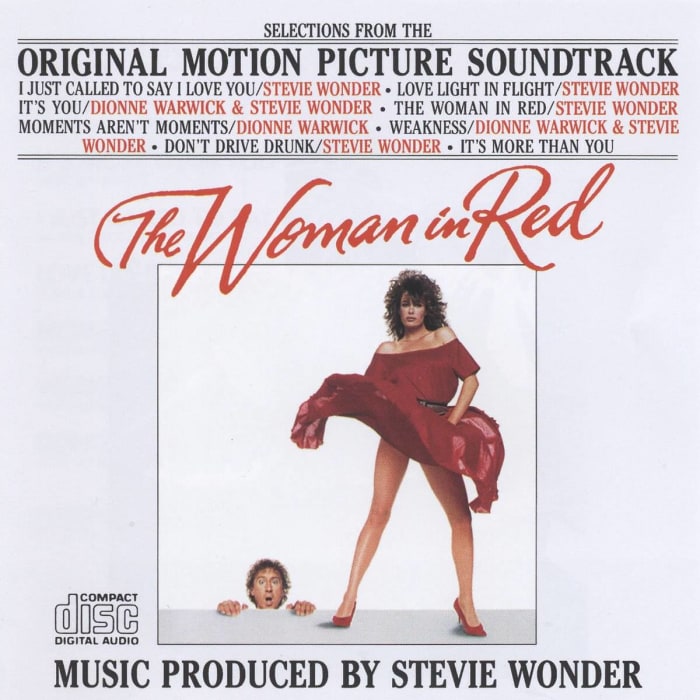
Gene Wilder’s insipid remake of Yves Robert’s “Pardon Mon Affaire (or An Elephant Can Be Extremely Dangerous)” hasn’t disappeared completely from memory for two reasons: 1) it was one of the first PG-13 releases, and 2) it won an Academy Award for Best Original Song. This was Wonder’s first crack at a full soundtrack since “The Secret Life of Plants," and it’s much, much better than its reputation. Though “I Just Called to Say I Love You” is now a Gen X/Millennial punch line thanks to Jack Black in “High Fidelity," put on some headphones, listen without prejudice and accept the fact that it’s a perfectly composed pop song (especially the long version with the vocoder verse). And there’s more to like on the LP! Wonder teams with Dionne Warwick on the tuneful “It’s You” and “Weakness," but it’s “Love Light in Flight” that soars above the rest. That Stevie could maintain his dignity while working within the adult contemporary genre is just one more testament to his genius. The album closes with “Don’t Drive Drunk," the first and probably only MADD anthem.
"A Time 2 Love" (2005)

Like Prince, Wonder had trouble staying current with his sound, but if it’s considered square to get off on an old-fashioned slab of funk like “So What the Fuss” (featuring Prince on guitar and En Vogue on background vocals), what’s the point of listening to music? These are some of the most talented musicians on the planet getting loose in the studio together; enjoy them while they’re here. Also turning up on this enjoyable hodgepodge: Paul McCartney, India.Arie and Kirk Franklin.
"For Once in My Life" (1968)
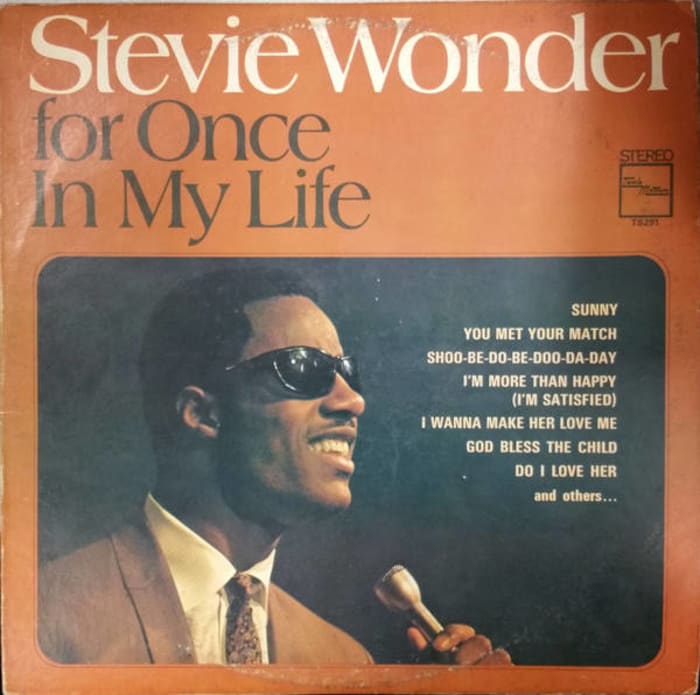
Getting there. The title track, written by Motown vets Ron Miller and Orlando Miller, is a bespoke ditty for Wonder, and he attacks it with the unfettered optimism of Freddy from “My Fair Lady." It was a massive hit for Stevie, but the gem of the LP is “Shoo-Be-Doo-Be-Doo-Da-Day”; from the clavinet opening to Jamerson’s nimble bass work, it’s a tonal declaration of independence for Wonder. Had Wonder found his voice earlier in Motown’s run, he might’ve been hidebound to the formula like Smokey Robinson. But this 18-year-old had come of age in the Motown factory, and he was ready to leave home. He just had to work up the courage to follow his peculiar muse.
"Conversation Peace" (1995)

This 1995 album might’ve fared better with critics and listeners had it not been hyped up as a labor of love. When it finally hit, you couldn’t help but feel a little underwhelmed. It’s a logical extension of “Jungle Fever” bolstered by a little hip-hop swagger and no shortage of consciousness-raising. It’s hard to get worked up over a proficiently written love song like “For Your Love," but once you accept that Wonder’s wild experimental days are long gone, it’s a solid effort.
"In Square Circle" (1985)
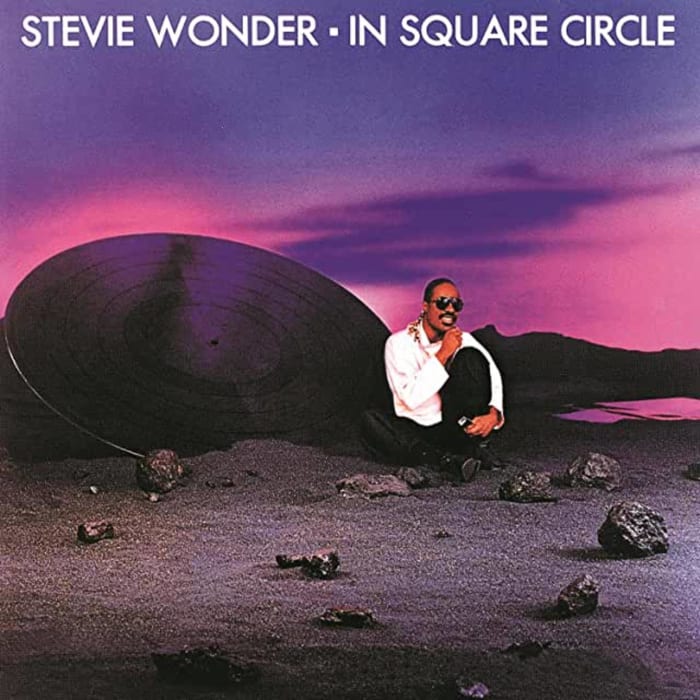
Adult contemporary pop was the plague of ‘80s FM radio, and Wonder’s unabashed embrace of the genre hurt his cred with younger critics (though the Village Voice’s Robert Christgau stuck with him). Thirty-plus years on, it’s easier to assess the quality of Stevie’s ‘80s work, and, guess what, it’s pretty great! “Part-Time Lover” is a polished leadoff single, but you’ll find the best stuff in the second half, particularly the Donald Fagen-esque “Go Home”, and the divine “Overjoyed."
"Jungle Fever" (1991)
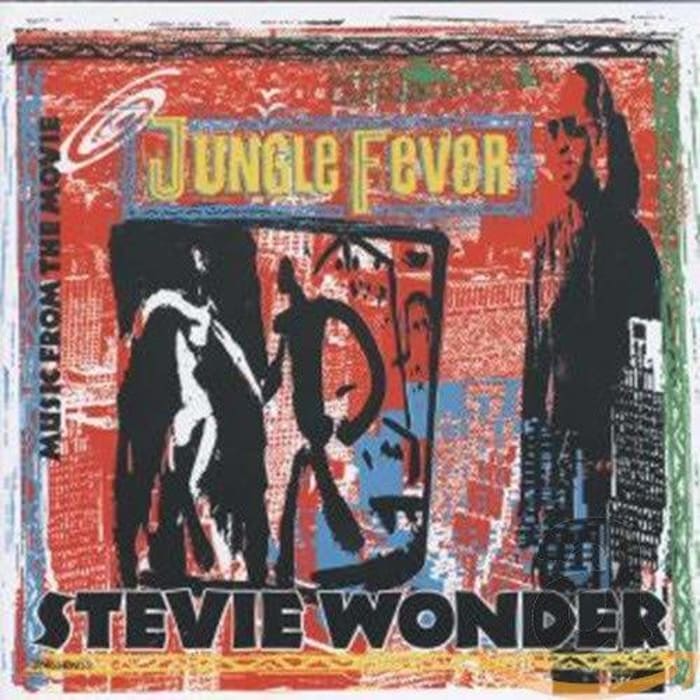
Finally, a movie worthy of a Stevie Wonder soundtrack. After a solid decade of churning out adult contemporary ditties, Wonder got back to his R&B roots and tried some New Jack Swing on for size with the sublime “Gotta Have You." As with Wonder at his most creatively engaged, the music generally transcends genre; he’s not breaking any ground here, but he is putting a singular spin on whatever was blasting out of boom boxes in 1991. And the title track might be his catchiest jam since “Master Blaster (Jammin’)."
"Where I'm Coming From" (1971)

Just as movie studios were blindsided by the rebellion of New Hollywood, Berry Gordy was caught off guard by the roiling social consciousness of Motown titans like Marvin Gaye, The Temptations and, of course, Stevie Wonder. By far the youngest of the bunch, Wonder’s break with the label’s R&B conventions was Gordy’s worst nightmare. The resulting LP (which Wonder co-wrote with his wife, Syreeta Wright) is as jarring an artistic transition as you’ll ever hear in pop music. There is nothing on Wonder’s previous album that anticipates “Look Around” or “Do Yourself a Favor." Stevie goes wild on the Hohner clavinet (later employed on “Superstition”) and voices the character of a racist Southerner on the provocative “I Wanna Talk to You." There’s a single in here (“If You Really Love Me”) and one of the most beautiful songs ever written (“Never Dreamed You’d Leave in Summer”), but it’s the ambition of the other tracks that leaves you reeling.
"Signed, Sealed, Delivered" (1970)

This album comes on like a classic. The only drawback is the sequencing. “Never Had a Dream Come True” is a classic second track. It’s Stevie’s “Take Me with You." Obviously, you don’t want to start with the ecstatic title track, and the cover of The Beatles’ “We Can Work It Out," while stunning, flies in the face of placing Wonder front and center as a songwriter. The funky Wonder-Cosby-Pam Sawyer jam, “You Can’t Judge a Book By Its Cover, ' with its tight Funk Brothers arrangement, should’ve led off, but perhaps it was a bit too political (an issue heading into the ‘70s for Gordy). Side 2 is a wash, though the closer, “Something to Say," is worth it for James Jamerson’s hopping bass line alone.
"Music of My Mind" (1972)
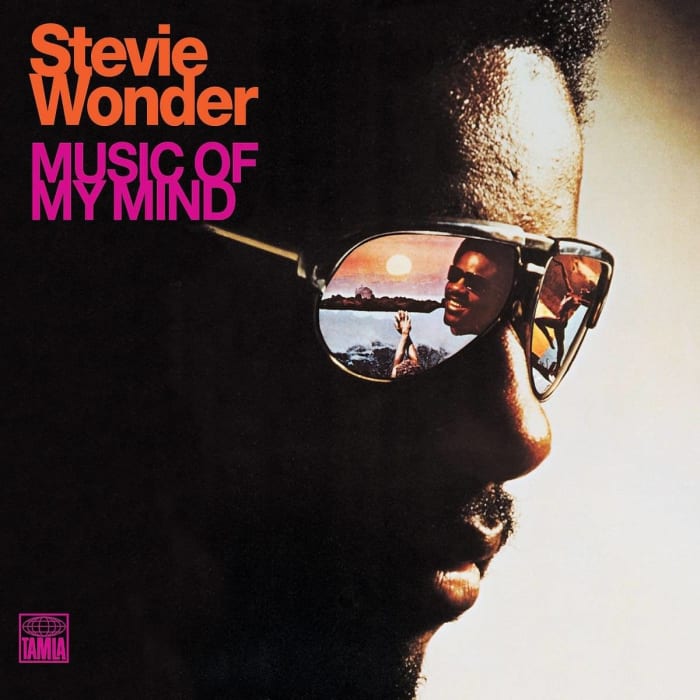
Emancipation. Wonder’s first post-Motown LP gave him the artistic freedom he’d long desired, and he responded by playing every single instrument save for the trombone and guitar. It’s a staggering achievement: jazzy, psychedelic and wholly unconventional. Eager to explore the world of Moog synthesizers, Wonder brought in Malcolm Cecil and Robert Margouleff to help him navigate the nascent technology’s myriad possibilities. It’s a work of genius, but like “Sgt. Pepper’s Lonely Hearts Club Band” or “Kid A," unless you’re showing off a new sound system, it’s not the first album that comes off the shelf. The highlight is “Sweet Little Girl," a feast of instrumentation that doubles Rhodes and acoustic piano and works in a “Sweet Sweetback’s Baadasssss Song” reference.
"Hotter Than July" (1980)

Wonder has always marched to the beat of his own drummer, but he knew he owed his fans a classic Stevie LP after the experimentation of “The Secret Life of Plants." Though it’s his first album of the 1980s, “Hotter Than July” feels like a logical extension of “Songs in the Key of Life." Stevie’s a little less political this time out, but he’s having a blast working out disparate genres like reggae (“Master Blaster (Jammin’)”) and country (“I Ain’t Gonna Stand for It”). “All I Do” is a sleek, uptempo love song, while “Rocket Love” is a seductive slow jam (with some lyrics that should sound familiar to fans of GZA’s “Cold World”). It’s Stevie’s cheeriest record in years, capped off with “Happy Birthday," his ebullient plea for the U.S. to turn Martin Luther King Jr.’s birthday into a national holiday.
"Talking Book" (1972)

Stevie had to get loose with “Music of My Mind” so he could get focused. He was only 22 when he recorded “Talking Book," which blows even Prince out of the water (who recorded his first masterpiece, "1999," at 24), and it hits like the work of a full, deeply experienced human being. Stevie gives the opening verses of the first track, “You Are the Sunshine of My Life” to background singers Jim Gilstrap and Lani Groves, before taking over for the rest of the album. It’s a gesture that’s both generous and arrogant. “Get started without me. I want to make sure this sounds right.” It’s all built around “Superstition," but don’t be surprised if, over time, “Maybe Your Baby” becomes your favorite song off the LP. The closer, “I Believe (When I Fall in Love It Will Be Forever"), has the greatest fake fadeout of all time. When Stevie hits the “Come on, let’s fall in love” outro, you’re clamoring for more.
"Fulfillingness' First Finale" (1974)

After bringing the party down a little with “Innervisions," Stevie leavened his fury and sorrow with some straight-up party tracks. “Boogie on Reggae Woman” is a deep groove with a light touch, which leads right into one of Wonder’s most beguiling ballads in “Creepin’” (featuring Minnie Riperton on background vocals). Most of the album’s got a gentle, afterhours funk to it, but Stevie has to let ‘er rip on occasion, and does so magnificently with the anti-Nixon scorcher “You Haven’t Done Nothin’." “The Won’t Go When I Go” is overwrought balladry on the level of “All Is Fair in Love," but Stevie in his artistic prime more than gets away with it.
"Innervisions" (1973)
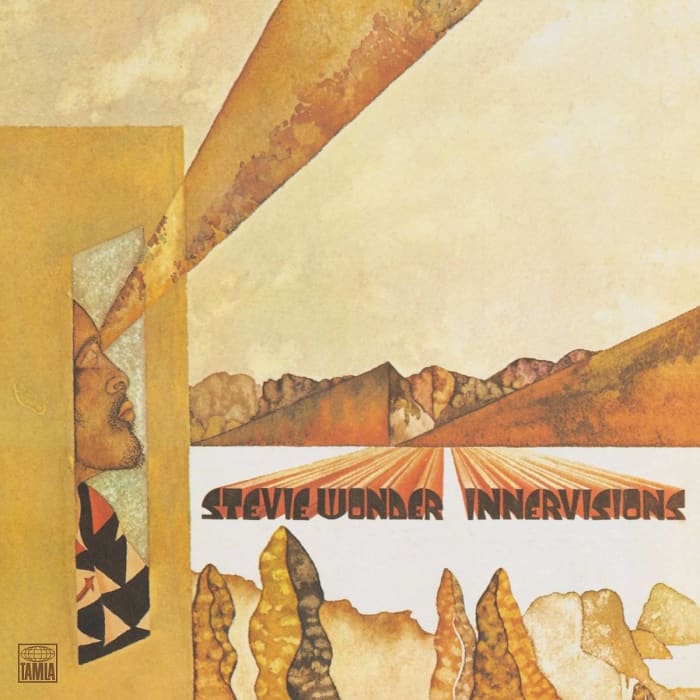
The title says it all: This is Stevie sharing his inner life with his listeners, the vast majority of whom are sighted. This is how he sees beauty (“Golden Lady”), addiction (“Too High”), injustice (“Living for the City”) and heartbreak (“All Is Fair in Love”). Lyrically, this is his peak. There’s always been pain and cynicism residing within him, but he’s never voiced it with such brutal eloquence. Take it as the flipside to “A Place in the Sun” on “Down to Earth”; he’s furious that he could’ve ever been so hopeful about humanity. And he closes with a song that was written about President Nixon but feels beamed from the past to warn us about our current commander in chief.
"Songs in the Key of Life" (1976)

“Good morn or evening, friends.” Wonder spent two years crafting his fifth masterpiece in a row, and it’s hard to think of a double album that covers more ground stylistically or exhilarates the listener from song to song. “Loves in Need of Love Today” eases us into the 105-minute journey and offers its first off-kilter triumph with the synthesized string ensemble of “Village Ghetto Land” (which jauntily details a neglected urban hellscape). Two songs later, it’s a party with the upbeat musical celebration of “Sir Duke” and the sweetly nostalgic “I Wish." Is there any filler? “Summer Soft” is deftly arranged but somewhat insipid compared to the rest of the LP. The rest is so magnificent that two of the album’s best tracks — the sci-fi ballad “Saturn” and the gospel-tinged worship of a beautiful black girl with “Ebony Eyes” — wound up on an extra record. The official album goes out roaring with two of Wonder’s very best, “As” and “Another Star” – at which point you pull out Record 1 and listen all over again.
Jeremy Smith is a freelance entertainment writer and the author of "George Clooney: Anatomy of an Actor". His second book, "When It Was Cool", is due out in 2021.
More must-reads:
Trending in Entertainment
Customize Your Newsletter
 +
+
Get the latest news and rumors, customized to your favorite sports and teams. Emailed daily. Always free!
Use of this website (including any and all parts and
components) constitutes your acceptance of these
Terms of Service and Privacy Policy.

